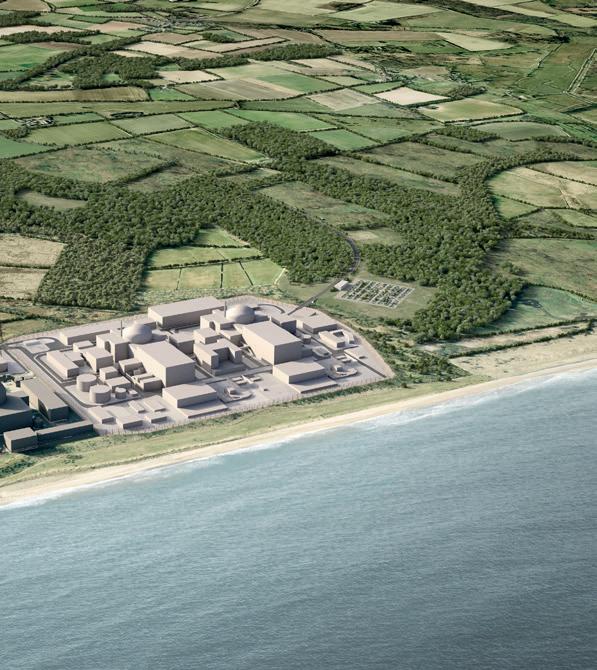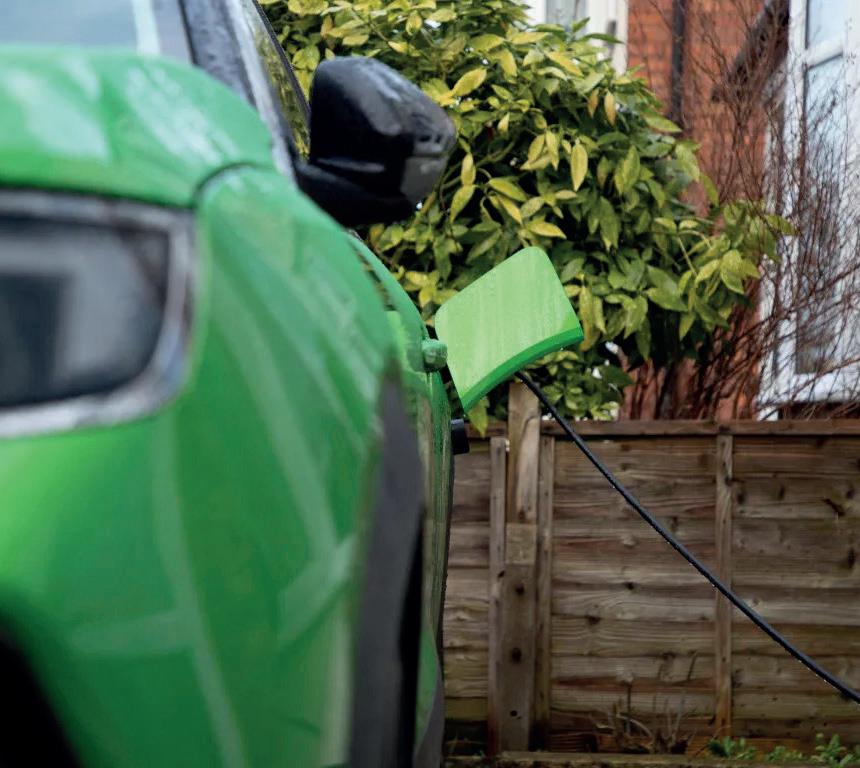
5 minute read
News
UK businesses set to invest £13.6 billion in EV transition in 2022
Businesses across the UK are set to heavily invest in the transition to electric vehicles in 2022, with an estimated £13.6 billion set to be spent this year.
Advertisement
With the UK set to ban internal combustion engine vehicles in 2030, businesses are beginning to invest in new fleets that will replace their polluting vehicles. In fact, in 2021, businesses across the UK spent £11.6 billion on electric vehicles and the supporting infrastructure in 2021, according to a new study from Centrica Business Solutions.
It’s expected that 2022 will see a 15% increase in spend, reaching £13.6 billion by the end of the year, with a lot of that spend being dedicated to overhauling entire fleets of vehicles. In fact, 163,000 electric vehicles are set to join business fleets this year. However, the addition of electric vehicles to fleets isn’t enough, with many companies also committing to the installation of electric vehicle chargers, both at the workplace and at employees’ homes.

Sizewell C gets go-ahead as UK pushes forward with nuclear power expansion
The UK Government is making good on the promises of its energy security strategy by giving the go-ahead to Sizewell C, a new nuclear power plant on the Suffolk coast.
As a nationally significant infrastructure project, the decision on whether to approve the project or not was in the hands of Business Secretary Kwasi Kwarteng, who has made public his support for the new power station. In fact, Kwarteng advanced plans for funding new nuclear projects in June, which was in addition to the £100 million in Government support Sizewell C received in January.
Despite Government funding, Sizewell C will still largely be funded by French energy company EDF, with an expected final cost in the region of £20 billion, which will be cheaper than the estimated £25–£26 billion cost for Hinkley Point C, the first new UK nuclear power station of this generation.
Sizewell C will be constructed next to the existing Sizewell B power station, with a total of two reactors set to be operational upon completion of the project. EDF estimates that the two-reactor plant would generate 3.2 GW of electricity, which could be enough to provide 7% of the UK’s total electricity needs.
Despite approval, campaigners against the new nuclear power plant plan to launch an appeal, which could further delay construction of Sizewell C.
Delays in the commissioning of new nuclear power stations are nothing new to the UK. Hinkley Point C, which was first given the go-ahead by the UK Government in 2008, has been plagued by delays and budget overruns. As of the latest estimate, EDF says the power station should come online as of June 2027.
Unsurprisingly, EDF are yet to provide an exact estimate as to when Sizewell C will be operational, simply noting that the project is expected to commence before 2024, with construction taking between nine and 12 years. Of course, it will require a more detailed planning application to pass, as well as dealing with any appeals, first.
Ofgem outlines plans for RIIO-ED2, promising investment without bill increases


Ofgem has announced its plans for the RIIO-ED2 price control period, with the energy regulator promising major investment without impacting consumer’s pockets.
The five-year RIIO-ED2 price control period will begin in 2023 and run until 2028, with big plans to boost grid capacity, improve customer service and resilience to prevent power outages, and prepare for the future of a greener, cheaper grid. However, all these plans will require major investment, with Ofgem outlining £20.9 billion in investment.
Despite the large amount of investment required, Ofgem understands the sensitivity consumers will have to any bill increases. Thus, it’s promising in the next control period that bills won’t increase to fund the investment, instead distribution network operators will have to work diligently to find efficiency savings. Additionally, investors have been told to expect lower returns.
While the plan outlined by Ofgem is just a draft, with the final plans to be published in December this year, as it stands, distribution network operators will stand to receive less than they have outlined in their business plans. In fact, on average, Ofgem plans to offer around 17% less to the levels of baseline funding requested, with businesses needing to make 1.2% per year of efficiency savings.

UK secures another 11GW of renewable capacity after record-breaking auction
The UK Government has announced that it has secured an additional 11GW of renewable energy capacity after a record-breaking CfD auction.
In July, the results for the fourth round of the Contracts for Difference (CfD) scheme were officially announced, with the Government confirming that it had secured 11GW of renewable capacity across 93 projects.
While 11GW may pale in comparison to the ScotWind auction from the Scottish Government, which secured 25GW of offshore wind power, this is by far the largest CfD auction ever launched. In fact, the 11GW secured is almost double the 5.8GW awarded in the 2019 Round 3 allocation, and more than all three previous rounds combined.
What’s notable about the 11GW of renewables rewarded is that these projects are ready to go, planning permission has already been secured, it’s just they were waiting on funding. Now, the Government has ensured that these projects have a funding contract in place.
Image Credit: urbans/Shutterstock.com
Electrical Review hails success of inaugural Powered On Live
Powered On Live, a two-day event exploring the hot topics within the electrical industry, has been hailed a major success by its organisers.
The inaugural Powered On Live took place on June 15-16, with attendees invited to watch live discussions with some of the industry’s best and brightest. In the end, 21 speakers from across the industry featured across the two-day event.
Topics covered at Powered On Live included a closer look at whether the UK could achieve its net zero ambition, the dangers of arc flash and how to mitigate them, how modern UPSs are enabling virtual power plants, how to deal with the intermittency of renewables, and much more.
Electrical Review has confirmed that each event was recorded and will be available on demand for those who couldn’t make it to the event but still want to hear what was discussed. While an exact date the recordings would be available has not yet been confirmed, it’s expected the discussions will be released imminently.
Following the event’s success, organisers have announced plans for future events from both Electrical Review and its sister publication Data Centre Review. These events are set to expand on the success of the inaugural Powered On Live, which is set to return in 2023.
In addition to Powered On Live, Data Centre Review has confirmed that it will be hosting a two-day live event later this year, dubbed Critical Insight. This event is expected to take place on November 22-23.









